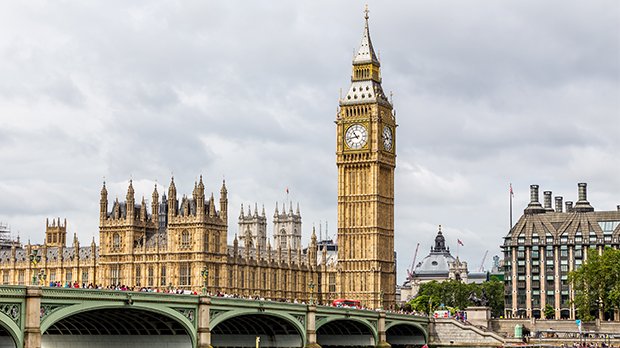
Today, the whole country looked on as new Chancellor – and former Health Secretary – Jeremy Hunt made his first ‘fiscal statement’ to a packed House of Commons.
The statement sets out the Government’s economic direction of travel for the coming years, and arrives in a period of tough economic challenges, with the UK now officially in recession.
The Chancellor announced a range of measures, aiming to increase tax intakes and put a lid on public spending as budgets are squeezed by inflation. But there’s one big question for Cancer Research UK: what does this mean for people affected by cancer?
While, as ever, the devil will be in the detail, here are our first thoughts.
What did it mean for the NHS?
While many areas of public spending saw tough decisions made today, there were welcome signs that the Government is making it a priority to shield NHS budgets from the worst of the impacts of rising inflation.
The Chancellor announced that the NHS in England will receive an extra £6.6bn over the next two years. With the chief executive of NHS England, Amanda Pritchard, recently warning that inflationary pressures could mean a budget shortfall of around £7bn, this important extra funding will go much of the way to plugging the gaps.
We will see over the coming weeks what this means for cancer services specifically. With cancer patients facing some of the longest waits on record for diagnosis and treatment, ensuring the NHS can keep adequately funding day-to-day services is a welcome step.
We know that some of the greatest pressures on cancer services are in getting patients a speedy diagnosis, so it’s also good news that the Government has committed to protecting capital funding – meant for investing in new facilities and equipment, including Community Diagnostics Centres.
And, because of how the UK Government funding system works, the decisions made by the Chancellor today will result in additional healthcare funding for the devolved governments: £1.5bn for Scotland, £1.3bn for Wales and £650m for Northern Ireland. It remains to be seen how Edinburgh, Cardiff and Belfast will choose to allocate this extra money, but we know that cancer outcomes in all three nations are facing the same challenges as in England in meeting long-term targets.
What did it mean for the cancer workforce?
One of the most important announcements today was on the NHS workforce. Growing the cancer workforce has been a key priority for Cancer Research UK since the launch of our Shoulder to Shoulder campaign in 2018. For too long, shortages in the cancer workforce have been holding back cancer outcomes, and for too long governments have failed to plan effectively for an NHS workforce that can meet patient demand.
Earlier this week, Cancer Research UK and over other 100 health organisations came together to call for the publication of a long-term NHS workforce plan in a letter to the Chancellor, and it appears we have been heard.
Today, the Chancellor confirmed that the upcoming NHS long term workforce plan will be published with all-important independent projections of the number of NHS doctors, nurses and other professionals that will be needed in 5, 10 and 15 years’ time.
This plan is a crucial first step towards growing the NHS workforce we need.
But a plan alone will not solve the chronic understaffing issues that impact every part of the cancer pathway. We still don’t know how much detail will be included in the plan, and, most vitally, whether it will be matched with the funding needed to actually train the necessary staff. The Chancellor and Health Secretary now need to make clear that this plan will be funded – otherwise, it simply won’t address the issue.
What did it mean for cancer research?
Speculation that the Research & Development (R&D) budget announced at last year’s Spending Review was at risk proved unfounded. The Chancellor today recommitted the UK Government to spending £20 billion a year on R&D by 2024/25. In a difficult economic environment, this vote of confidence in UK R&D, following calls from organisations across the R&D sector, including Cancer Research UK, was welcome and reassuring.
This pledge was matched by positive rhetoric around science, research and innovation. The Chancellor also stressed the importance of making the UK a ‘science superpower’ and highlighted the growth potential of the UK’s life sciences sector.
But several questions remain unanswered. There was no mention of the Government’s longer-term ambition to spend £22 billion on R&D by 2027. Similarly, the fate of the target to spend 2.4% of GDP on R&D is still unclear as we await new figures from the Office of National Statistics. Though these are likely to show that R&D spending is higher than initially thought, this was a missed opportunity for the Government to set out a plan for the UK to compete with market-leading countries like Israel, Korea and Sweden, which invest significantly more than 3% of GDP on R&D.
Further, there was no mention of the EU research funding programme Horizon Europe – likely due to ongoing uncertainty around UK association with the programme. Cancer Research UK, along with nearly every other research-intensive organisation in the country, sees association with Horizon Europe as fundamental to the UK’s science superpower ambitions.
Nonetheless, while we will continue to monitor these developments, today’s announcement on R&D funding provides some reassurance that the Government sees the vital role of UK R&D in delivering a growing economy and healthy population.
What did it mean for preventing more cancers?
So, there were reasons to be cautiously optimistic on research investment and arresting the decline of cancer services. But the statement provided little in the way of news on Government plans to stop people getting preventable cancers – by far the most cost-effective way of reducing the number of cancer cases.
There were no measures announced by the Chancellor to tackle major causes of ill health. There was no additional investment in tobacco control, nor any clear decision on the increase to alcohol duty. And with no increase in the public health grant, there are no extra funds for key services that can help people stop smoking, maintain a healthy weight and manage their alcohol intake.
Smoking is the biggest cause of cancer, leading to cases that disproportionately affect the least well-off in our society. As part of our ongoing Smokefree UK campaign, we are calling for a dedicated fund to support the measures and services needed to help people who smoke quit. This fund would make the highly profitable tobacco companies – and not the taxpayer – pay for the damage they cause, without letting them have an influence on how the funds are spent.
Unless remedied in the upcoming Tobacco Control Plan for England, this lack of investment will seriously threaten the UK’s ability to achieve its smokefree targets (defined as less than 5% of the population smoking), as well as its wider cancer and levelling up ambitions.
We also know that smoking costs England alone over £13bn in lost productivity due to smoking-related lost earnings, unemployment and premature death. The announcement of a review by the Department of Work and Pensions (DWP) into the drivers of long-term declines in workforce participation is therefore welcome, and we will work with DWP to build the case for action against smoking.
While today was a missed opportunity for the UK Government to address the biggest avoidable cause of cancer, we will continue our campaign to challenge all of the political parties to do more.
But we’re still waiting for a plan for cancer…
On a first reading, then, we can tentatively say that this fiscal statement looks like good news for NHS funding, the cancer workforce, and cancer research – even in these challenging economic times. But the Government still has big gaps to fill to tackle preventable cancers.
Meanwhile, as far as the NHS is concerned, it’s clear the Government expects a return on its additional investment. The Chancellor called for an public health service with “Scandinavian quality [and] Singaporean efficiency”.
But today, cancer outcomes in the UK lag well behind comparable countries, both in Scandinavia and around the world. We’ve got a long way to go.
There’s real scope for both making the NHS more productive and delivering better outcomes for cancer patients, through streamlining diagnostic pathways, enabling innovation and preventing more cancers in the first place.
However, for any reforms to be a success, we need a plan for how we can transform cancer outcomes here from world-lagging to world-leading. The glaring omission from the Chancellor’s statement today was any recommitment to a 10-Year Cancer Plan.
This can’t keep being kicked down the road. We need a fully funded, comprehensive plan to transform cancer services. It’s the least people affected by cancer deserve.
Matt Sample is a policy manager in our policy development team.







